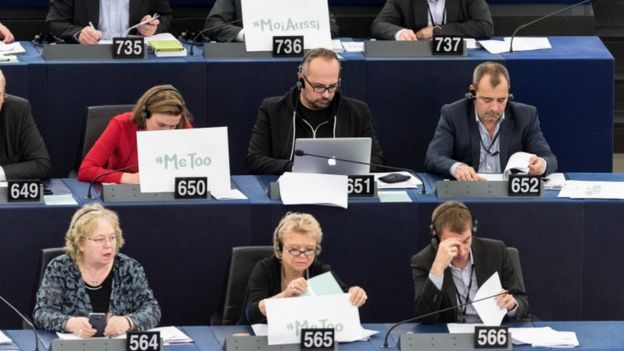By Jenilyn Brhel
Impunity Watch Reporter, Europe
BERLIN, Germany – Young refugees are being pushed into prostitution in Germany by the people hired to protect them, a new report finds.

A program by public broadcaster ZDF called “Frontal 21” ran in Germany on Tuesday, November 7th. The broadcast alleges that employees of security companies in Berlin are pushing refugees at accommodation centers into prostitution.
The security guards reportedly meet with refugees – including minors – in shelters and encourage them to take up prostitution. The guards earn commissions for each referral.
ZDF interviewed several security guards who admitted to the practice and indicated that young men are particularly vulnerable. One guard indicated that “they need to be of a certain age, attractive. From 16 years and up; the younger they are, the more expensive they are.”
Another guard responsible for the oversight of several shelters admitted to a network of pimps within the refugee homes.
Several refugees corroborated the guards’ statements. A 20 year-old Afghan migrant told ZDF that after his refugee application was rejected, he was approached by a security guard with an offer. He was told that “for sex with a woman you get €30, maybe even €40”. He stated that he had to earn money to survive but that “I’m ashamed of what I do.”
A social worker in Berlin interviewed by ZDF stated she has been monitoring the situation. She witnessed guards giving money to residents at a shelter and confirmed with the residents that prostitution is occurring.
Berlin’s Department for Integration, Labor and Social Affairs have advised that the allegations are being taken seriously and are under investigation.
“We have to take this very seriously, because it is totally unacceptable to exploit the material hardships that many refugees and migrants are in,” said Steffen Seibert, spokesman for the German government. “It would be morally reprehensible if they were forced into prostitution.”
The allegations against the guards come after the United Nations reported in September that 75% of youth migrants coming into Europe are victims of forced labor, sexual abuse, child marriage and other exploitation.
“If the allegations of security staff profiting from and driving refugees into prostitution are true, these would be very serious charges,” said Steffen.
The allegations come amidst concerns over how to accommodate migrants in Germany. Between 2015 and 2016, over one million refugees arrived.
For more information, please see:
Deutsche Wells – Berlin Security Guards Pushed Young Refugees Into Prostitution – 25 October 2017
Gulf News – Berlin Security Guards Pushing Refugees Into Sex Work: Report – 25 October 2017
The Local Germany – Security Guards in Berlin are Pushing Refugees Into Prostitution: Media Report – 25 October 2017
Reuters – Germany Investigating Reports of Refugees Forced Into Prostitution – 26 October 2017
USA Today – Young Refugees Pushed Into Prostitution in Germany – 26 October 2017



